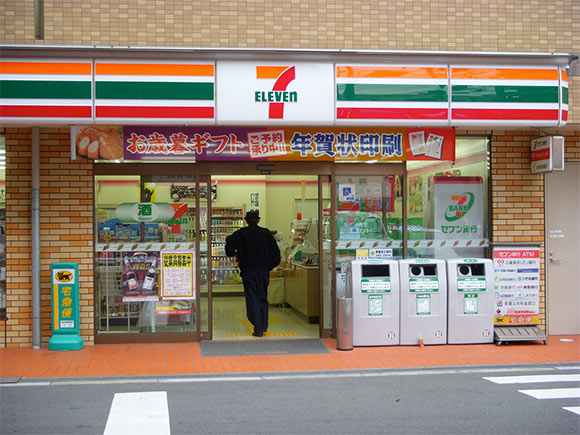J-List has a popular Facebook page, and today I decided to do another open post, asking readers to list any questions they had about Japan, which I’d answer here. Here are some of the questions I got.
Are the Japanese really that bad at speaking English, and is the younger generation getting better at it?
As a group the Japanese are terrible at learning English. The reasons are many, but the biggest one is that English is treated as a subject for tests, which you can safely forget once you’re done with your education. Obviously individual exceptions exist.
What would you say the most bizarre Japanese cuisine that you have enjoyed is?
Baby octopus, brine-pickled squid intestines, basashi (horse sashimi). The strangest thing I eat that I actually like is squid jerky.
Are the Japanese people tired of foreigners living in Japan?
Japanese sometimes believe there are “a lot of foreigners” living around them, but at just 1.5% of the population, compared with 14% for the U.S. and 12% for Germany and the U.K., the number of gaijin is actually tiny, especially when you realize that it includes Japan-born Koreans or Chinese who are fully acculturated to Japan yet choose to not take Japanese citizenship for cultural reasons. As the country’s population falls, the numbers of foreigners will have to rise or the economy won’t be able to function.
Is it true that people in big cities are rude to outsiders? One of my friends swears that is true.
I’m sure each city is quite different. Tokyoites are actually known for being polite, though individuals can vary. People from Kyoto are famous for being haughty and rude, which they can get away with because damn, they’re from Kyoto.
What is the fascination with “naughty tentacles”?
Actually this is a Western association, and the Japanese aren’t aware they’re famous for tentacles. While the famous “Dream of the Fisherman’s Wife” shunga/ukiyoe image from 200 years ago is said to be the start of this genre, our collective perception that Japan is the land of Tentacle Grape mostly comes from the 1987 anime Urotsuki Douji: Legend of the Overfiend.
Is there a stigma associated with buying/owning ecchi products like JAV or H-games in Japan or is it just taken in stride by the general population?
Most Japanese would say 仕方がない shikata ga nai (“it can’t be helped”) about these things. It’s all part of being a healthy human being. The Japanese are quite refreshing that way.
Which convenience store do you like best?
Hmm, 7-11 is usually my conbini of choice since they have the best salmon onigiri, though Family Mart has good melon-pan.
For beef bowl, Yoshinoya or Sukiya?
Yoshinoya serves American beef while Sukiya’s comes from Australia. All the Yoshinoyas in our city closed recently we’ve been eating Sukiya most of the time.
Feminism in Japan. Does it exit?
An interesting question. Western-style feminist ideas are frankly rare in Japan, and I’ve heard that if a woman is a feminist it means she has studied English abroad. Although the level of education of women is very high in Japan, I’ve had many students (as well as talented female employees at J-List) who wanted nothing more than to quit work and be housewives/mothers, at least while their children were small. It’s to Japan’s credit that this is usually achievable by most people economically. Of course, J-List is based in a rural part of Japan; in urban areas like Tokyo, there’s much more focus on careers.
How about Japanese urban legends?
All Japanese supposedly believe that the Lucky Strike logo is supposed to represent the atomic bombing of Hiroshima as seen from above. This is wrong as the logo dates from 1936. They also think that Pizza Hut is “Pizza Hat.”
In your opinion, how do you think American/English voice actors compare to their Japanese counterparts skill wise?
American voice actors work hard, but the Japanese seiyu really have to have dedication in order to make it big. When the voice cast of the Haruhi Suzumiya anime came to Anime Expo, Hirano Aya was asked how she became a voice actresses. She answered that she had to attend a special voice training school in lieu of normal high school, basically giving up all friends and hope of a normal life for years in order to realize her dream. The American VAs were like, “I saw an ad in the paper and applied. They hired me on the spot.”
I would love to know more of the “coming of age” ceremony and how long the tradition has been going on in Japan. All my Japanese friends returned to Japan before their 20th birthday and had a huge celebration.
As with most areas of Japanese culture, this one goes back a long time, to the year 741 AD during the Heian Period. It’s a big deal, a chance for new adults to see all the friends they grew up with. My son went to great lengths to avoid legally changing his address to his new Tokyo apartment so he can do his coming-of-age ceremony here in Gunma with his friends when the time comes in two years.
Are there really vending machines that sell pantsu?
99.9% of that is urban legend. They probably existed somewhere but have been magnified by the “Lens of the Internet,” which makes strange things appear larger when viewed from outside Japan. Giant cats that carry people to work aside, Japan isn’t nearly as bizarre as it seems when viewed through the Internet.

Your Japan-related questions answered.














